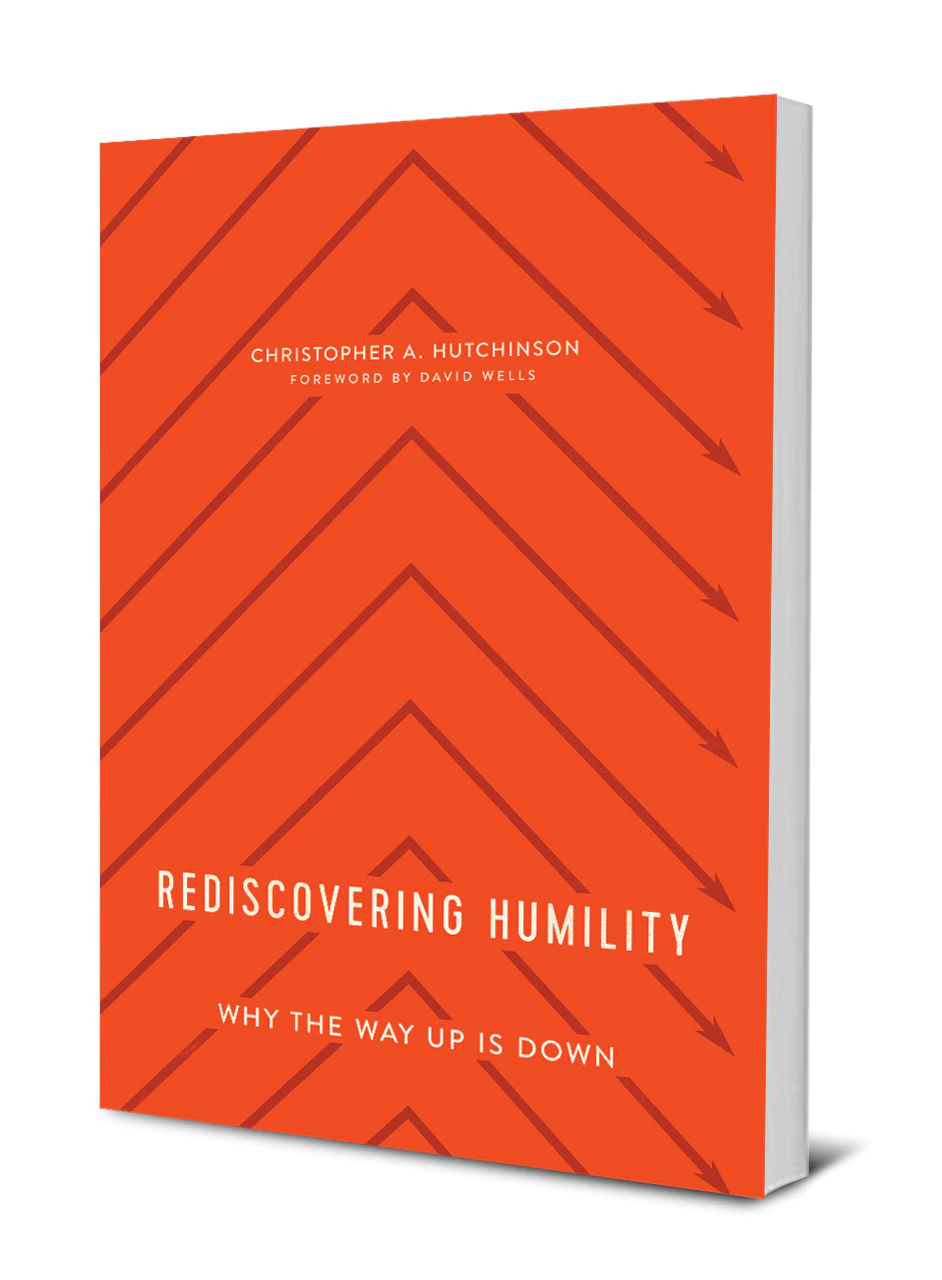I am so proud of my humility. Really, I am a very humble person. And I congratulate you on your humility too, let me tell everyone about it so that we can praise you.
Ahh, humility: the call of the Christian life but a great challenge to live out. What is true humility? Christ humbled himself becoming a man, and dying on a cross (Philippians 2:6-8). The Bible calls us to humility (Philippians 1:3, Colossians 3:12), but what does that look like? What would it mean for our gatherings to be humble in their message, practice and outreach? How about with the wider church and how we live in the world?
The Bible calls us to humility but what does that look like? Christopher Hutchinson builds a convicting case that humility is key to the believer’s life
Christopher Hutchinson’s insightful new book Rediscovering Humility builds a convicting case that humility is key to the believer’s life:
I wish to advance humility as the central paradigm of the Christian life ( … ) Humility is the greatest prerequisite to faith in Christ and its most telling result. It is the alpha and omega of the gospel at work in God’s people. Humility ought to be the most prominent centerpiece of any Christian worldview.

Rediscovering Humility
Christopher A. Hutchinson
Why are there so few treatments on humility? We have stopped valuing it. It doesn’t draw a crowd, and we’re uncertain what it might even look like.
Neglecting Humility’s Beauty
Hutchinson argues that “modern Christians have not basked deeply in humility’s beauty, nor studied much its logic, nor practised well its ethics.” Few value humility either within or outside the church. He touches on the traps of seeking humility—it’s a long process; it’s not just speech or demeanour, nor is it self-deprecation— and proposes that Christ is central to the pursuit of humility. We need to focus on Christ, not our own humility at all: “for every look at yourself, take ten looks at Christ” (M’Cheyne).
Faith
The first section Humility Found—Faith reminds us of the core truths of the gospel, and how no-one can boast, except in Christ. We approach God humbly, in repentance, and accept his grace. Insightfully, Hutchinson addresses the tension many feel: “May Christians confidently assert that Jesus is the only way of salvation and remain humble?” and shows how this is indeed possible. He looks at Christ’s humility in the Trinity, in his offices of prophet, priest and king (where he is also subject, sacrifice and servant) and in his character. Christ was humble and he was humbled, giving us a model to rest in.
Hope
Humility Embraced—Hope examines humility for the individual believer. Hutchinson exposes the prevalence of pride and challenges us to consider being “bold nobodies” for Christ. There is comfort that we grow in humility through suffering and challenges as we wait in hope for eternity. Finally, personal humility is displayed through how we love others, for “humility towards God is nothing if not proven in humility towards men” (Andrew Murray). We should settle at the bottom of totem pole, desiring to lift others up: serving in menial tasks, deferring our own agenda, not glorying in success, speaking only to bless and willingly forgiving others. He challenges: do we categorise key people or precious souls? Do we give special treatment to some, because of their high or low station?
Hutchinson exposes the prevalence of pride and challenges us to consider being ‘bold nobodies’ for Christ.
Love
Humility Applied—Love considers humility from various aspects of the Christian community: an incredibly helpful perspective and possibly unique in this area. We might expect application to be in family relationships or in our workplace, and those areas are worth attending to. But Hutchinson has applied it to the church, and our relationships within the body of Christ.
Humble churches house people willing to make a public declaration of faith and publicly sit under the leadership of others, alongside others. They are based around the word of God, are prayerful, and value the sacraments:
A church that has abandoned the Bible as its authority, either formally or practically, is, by definition, proud. They lean on their own understanding, are wise in their own eyes, and will not be spiritually healthy until they turn again to the authority of the written Word (Proverbs 3:5–8).
Turning to church leaders, using the rebukes of Matthew 23, he encourages them to serve menially as well as up the front, to be careful with praise and titles that elevate, and espouses the wisdom of a plurality of leadership so that one person doesn’t have all the power or praise.
Humility in Action
Hutchinson suggests churches should operate in humility across denominations and larger groupings. Unity is important, as is maintaining truth but it takes great humility to do both well. I appreciated the use of J. I. Packer’s suggestion that there are trunk, branch and twig doctrines (or essential, important and indifferent doctrines). Truth requires you to maintain the essential, you can agree to disagree on the indifferent, but most conflict comes with the important. While not giving clear advice on how a church will define which doctrines fit into each category, he posits that how we deal with the “important” category is the most significant for how well we pursue unity humbly:
True unity takes more than good intentions or doctrinal agreement or hard work. It takes gospel-wrought humility. So where unity is lacking, chances are, so is meekness toward one another.
Next, comes the question: “what does humility look like as the church interacts with the fallen world?” Using the woes of Matthew 23, Hutchinson unpacks numerous areas, such as the message our church sends when people attend: what do they see up the front, a cross or a massive sign with the church’s name and motto? Is the photo of the minister the largest on the website? He considers whether people pray and give privately to the Lord or publicly for people to admire. I appreciated his thoughts on how to interact wisely and humbly with culture, for “whenever churches address the sins of society, they almost always mean someone else’s sins, not their own.” This may be an area the Australian church needs to think through a little more.
Finishing with the encouragement that our churches should be places of respite, not factories churning out programs, he gives an interesting final plug for church planting, suggesting that when done in a humble framework it spreads out people and resources and stops churches staying large for the sake of their own name and glory.
Hutchinson includes numerous quotes, as well as some wonderfully Christ-exalting responsive prayers, expanding the book’s overall impact. He has given the Christian community a valuable, biblical insight into the humility of Christ and our humble response as part of the body of Christ. I came away both challenged and encouraged, yet inspired to continue to turn to the Lord Jesus to focus on his sacrifice and humility, and seek the joy found in serving others.
First published at https://musingsinadelaide.blogspot.com/















